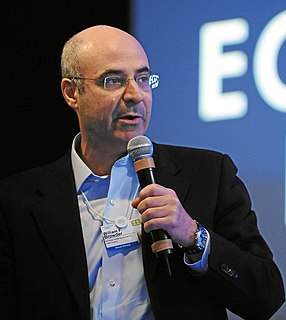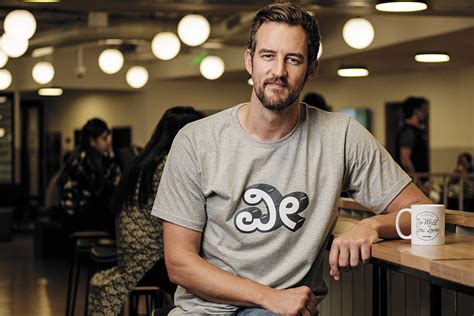A Quote by Marc Benioff
I'm amazed by the potential of more companies employing integrated philanthropic initiatives at earlier stages in their life cycle. What if this were done on an even more massive scale? Consider what would happen if a top-tier venture-capital firm required the companies in which it invested to place 1% of their equity into a foundation serving the communities in which they do business.
Related Quotes
As a small business or startup, one of the factors you should always consider when looking at a potential partnership is the incremental potential reach. Note that wider reach doesn't always mean a better partnership opportunity. Instead of sheer scale, take a look at which communities your potential partner can open up for you.
Imagine if the pension funds and endowments that own much of the equity in our financial services companies demanded that those companies revisit the way mortgages were marketed to those without adequate skills to understand the products they were being sold. Management would have to change the way things were done.
When this crisis began, crucial decisions about what would happen to some of the world's biggest companies - companies employing tens of thousands of people and holding trillions of dollars in assets - took place in hurried discussions in the middle of the night. We should not be forced to choose between allowing a company to fall into a rapid and chaotic dissolution or forcing taxpayers to foot the bill.
The story started over a decade ago when I ran Hermitage Capital Management, the largest investment firm in Russia. I was very successful, but when I started to complain publicly about corruption at the companies in which my fund invested, President Vladimir Putin had me expelled from the country and declared a threat to national security.
Northleaf is delighted to have been chosen to manage the new fund. We look forward to implementing the fund's long-term strategy of constructing a portfolio of high-potential venture capital funds with the scale and resources to execute their plans, support successful high-growth companies and deliver world-class returns.


































